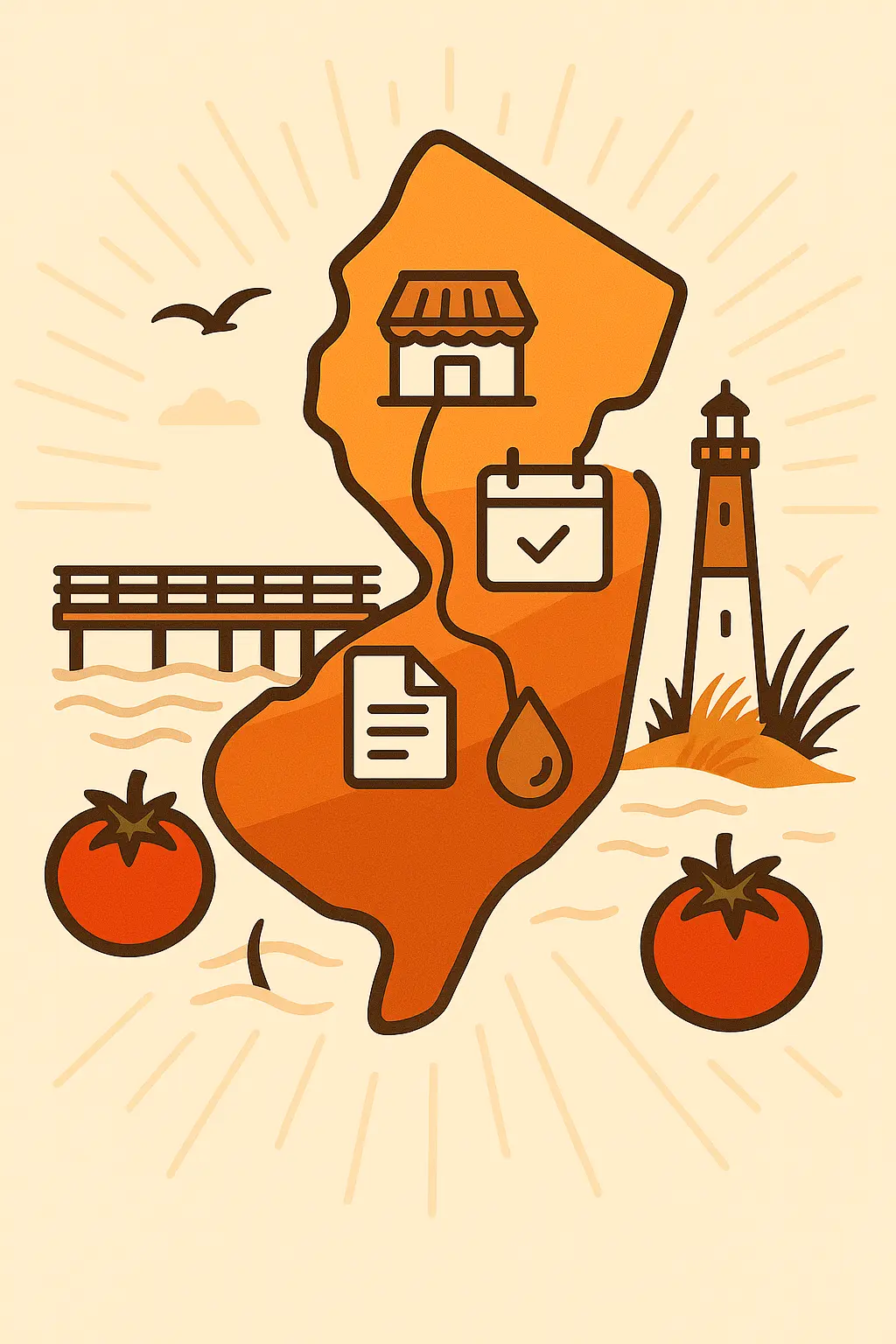FOG & Used Oil Rules for New Jersey
New Jersey’s Uniform Construction Code adopts the International Plumbing Code statewide: every grease interceptor must be pumped at least once every ninety days or the moment accumulated grease and settled solids fill one‑quarter of the tank’s depth. That rule holds from the diners of Hoboken to the boardwalk kitchens in Wildwood, yet each county (and many municipal sewer utilities) layers permits, surcharges, and civil fines on top—so a pizzeria in Jersey City files different paperwork than a crab shack in Cape May. Start with the statewide snapshot, then tap your county for today’s dollars and renewal links.
Researched and Authored by:

Jorge Argota
Co Founder

View our resources of important information in regards to your restaurants for rules and regulations to avoid penalties.
Statewide Snapshot
New Jersey law separates two waste streams with different compliance paths:
Grease trap waste – Waste oil FOG pumped from the interceptor. Every load needs a manifest kept on site for three years.
Used cooking oil – Clean fryer oil you pour into a barrel and sell or recycle. The state sets no pickup interval, but health departments match fryer output to haul tickets; mismatched volumes trigger dumping investigations. Recycling through a licensed hauler keeps you off that radar and often pays a rebate.
Best practice: File every pump‑out manifest and oil pickup ticket the day you receive it. Keep three years of records within arm’s reach of the sink so an inspector can confirm compliance in seconds.
25 % limit
Pump the interceptor once grease or sludge reaches one‑quarter of its liquid capacity.
90 day limit
Even a spotless trap must be pumped at least once every three months.
Legal GA Statue
Violations fall under N.J.A.C. 7:14A (New Jersey Pollutant Discharge Elimination System) and local pretreatment ordinances; counties and sewer authorities may tack on civil penalties and recovery fees.
Your County Rules & Regulations
Choose a county to see permit fees, dumping fines, and renewal portals.
Essex County
$240 FOG certificate, $300 first‑offense dumping ticket that jumps to $900 on a repeat. Interceptors follow the 90‑day / 25‑percent trigger.
Read More
Hudson County
$220 permit, $270 dumping fine (first), $810 (second). Same 90‑day or 25‑percent pump‑out rule, plus quarterly manifest uploads to the utility portal.
Read More
Camden County
$175 permit, $220 spill citation, $660 on the second offense. Inspectors spot‑check pump‑out receipts at surprise visits.
Read More
Bergen County
$210 permit, $250 dumping fine, $750 for repeat offenses. Monthly self‑reporting of pump‑out dates required for malls and food courts.
Read More
Ocean County
$160 permit, $200 fine, $600 for repeat dumping. Shore‑area eateries undergo extra inspections during summer peak.
Read More
Atlantic County
$180 permit, $220 first‑offense fine, $660 second. Coastal surcharge applies to establishments within the flood hazard zone.
Read More
Popular Downloads – Updated Weekly
The four files kitchen managers in New Jersey grab most—live counts refresh each Monday so you see what’s trending.
FOG Permit Cost & Fine Tracker
The complete dollar table for all the counties in New Jersey
Can’t Find a Link?
Email info@greaseconnections.com with your county or request—our emergency response team will add the resource within one business day.
Last checked 19 May 2025 — next review Aug 2025
